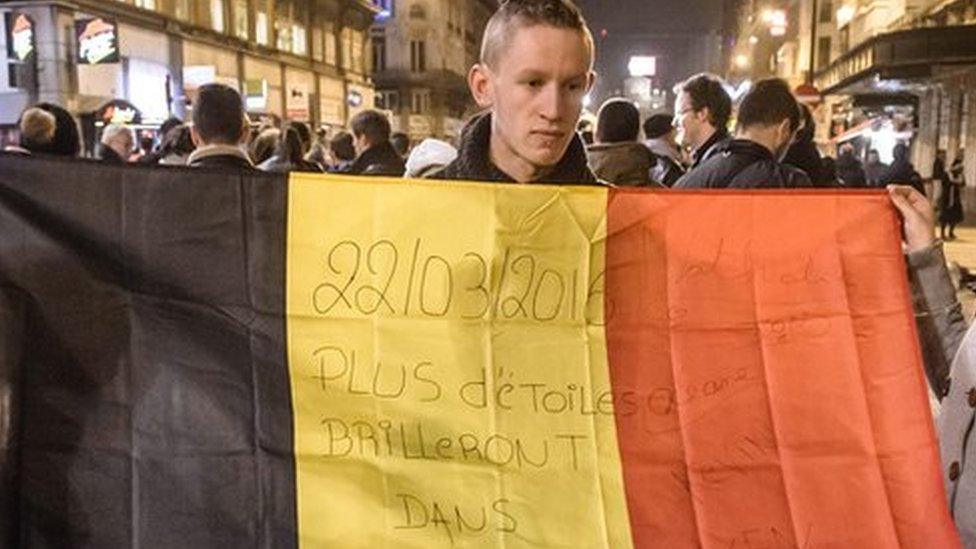Nigel Farage defends linking Brussels attacks and EU migration rules
- Published
UKIP leader Nigel Farage was talking to the BBC's Norman Smith
Nigel Farage has insisted he was "wholly justified" to link the Brussels attacks and EU migration rules.
Prime Minister David Cameron has said he does not think it "appropriate" to use the Brussels attacks to further arguments in the EU referendum debate.
But the UKIP leader said those campaigning for the UK to stay in the EU had already "politicised" the security issue after the Paris attacks.
And he told Talk Radio, external that Brussels was in a "state of lawlessness".
He also described the city as the "jihadi capital of Europe".
He added that EU border rules led to "the free movement of terrorists, of criminal gangs and of Kalashnikovs".
But Lord Hill, European Commissioner for Financial Stability, Financial Services and Capital Markets Union, told BBC Radio 4's Today programme that concerns over terrorism should be kept separate from thoughts about Schengen - the EU's passport-free travel zone.
He said: "I think there are questions obviously about Schengen, how it's operating. It needs to operate better."
But he said that the London bombings in 2005 involved "homegrown terrorists" and happened despite the UK not being part of the Schengen zone.
Former Conservative minister Peter Bottomley - who called at Prime Minister's Questions for people to unite with "hope not hate" - has tabled a Commons motion saying Mr Farage's comments "should be challenged within and outside his party".
Security gains
Meanwhile, the former head of MI6 from 1999 to 2004, Sir Richard Dearlove, has said "the cost to Britain would be low", from a security perspective, if it were to leave the EU.
Writing in Prospect magazine, external, he says: "Brexit would bring two potentially important security gains: the ability to dump the European Convention on Human Rights... and, more importantly, greater control over immigration from the European Union."
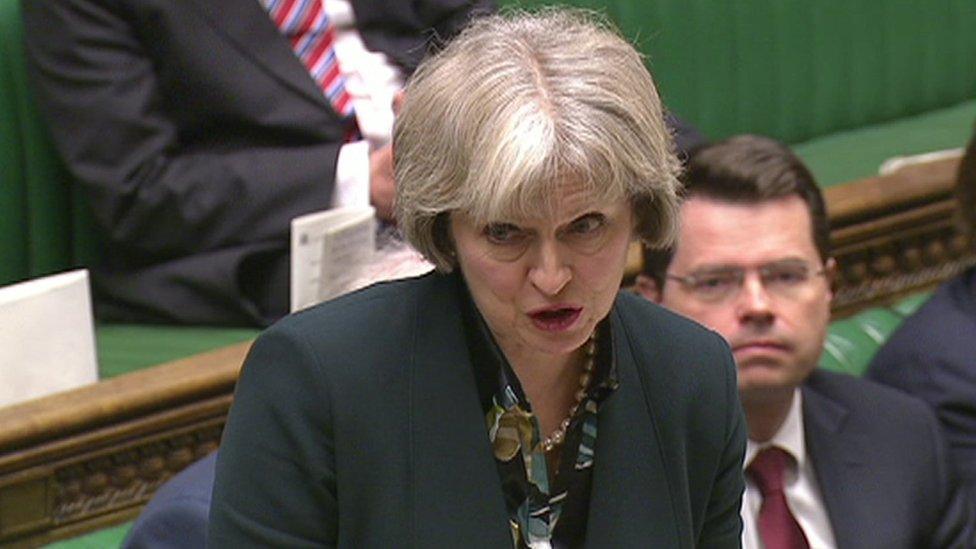
Theresa May said the UK must remain vigilant to the threats it faced
He adds: "Would Brexit damage our defence and intelligence relationship with the United States, which outweighs anything European by many factors of 10? I conclude confidently that no, it would not."
But Rob Wainright, a former director of Europol, said police co-operation across the EU had improved considerably over the past decade, with the European Arrest Warrant speeding up extradition procedures and the UK having access to the Schengen Information System - a network containing details of hundreds of thousands of wanted criminals and missing people.
"These EU instruments are clearly helping the UK deal with the threats involved," he told the BBC.
Leaving the EU would, at the very least, he said cause "uncertainty and disruption to the UK's security interests".
'Joint resolve'
Four Britons were injured in explosions at an airport and metro station in Brussels on Tuesday which left 34 people dead.
Security has been stepped up at key sites across the UK, and on Wednesday morning Mr Cameron chaired a second emergency Cobra meeting in the wake of the events in Brussels.
In a statement to MPs, Home Secretary Theresa May said the UK and its allies must work with "greater urgency and joint resolve" to defeat terrorism.
The UK is to hold a referendum on 23 June on whether or not to stay in the European Union. Mr Cameron is leading the Remain campaign, while Mr Farage is a leading figure on the Leave side.
- Published23 March 2016

- Published23 March 2016
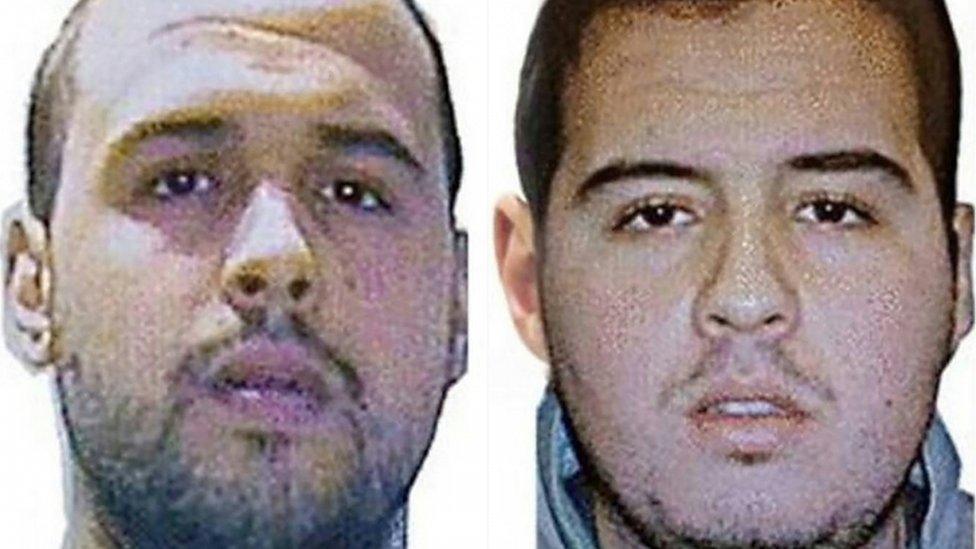
- Published22 March 2016
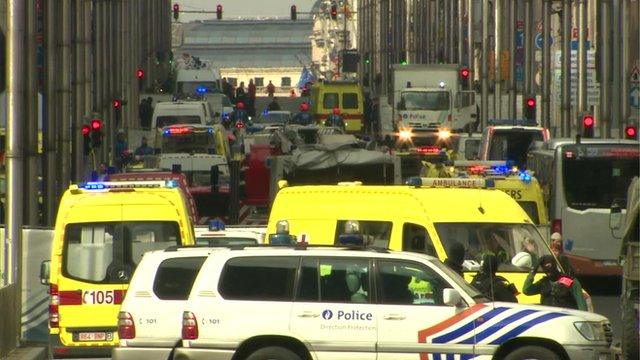
- Published9 April 2016

- Published23 March 2016
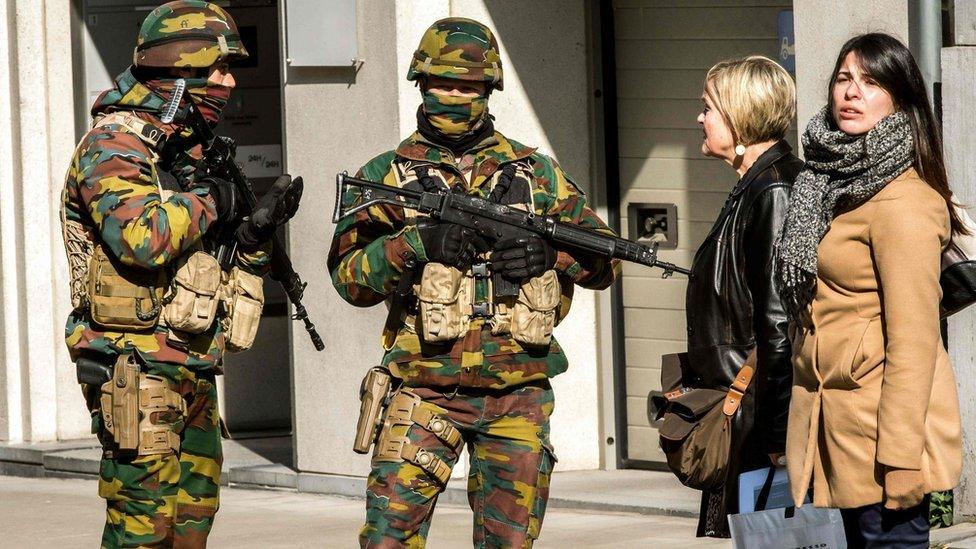
- Published23 March 2016
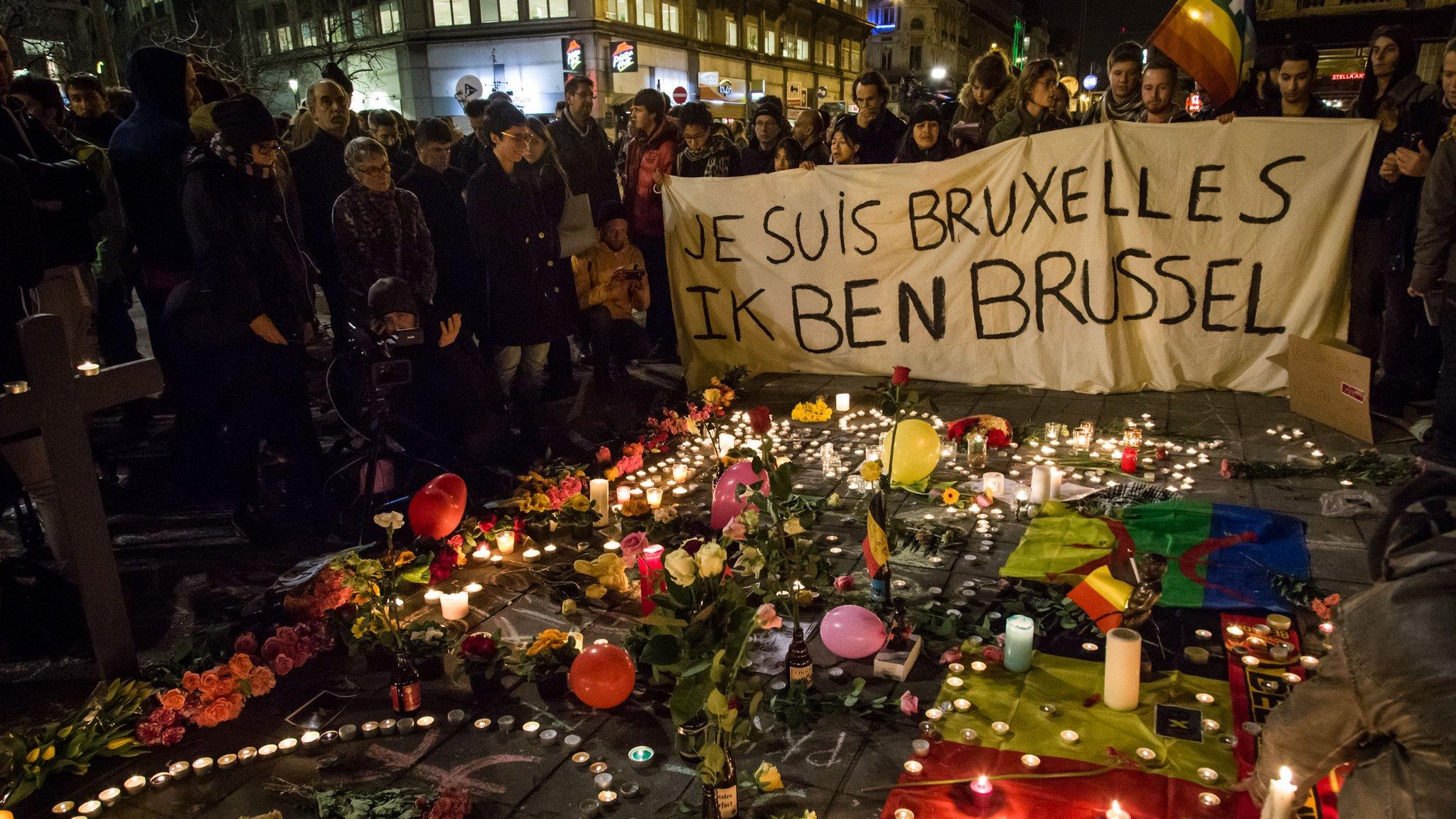
- Published23 March 2016
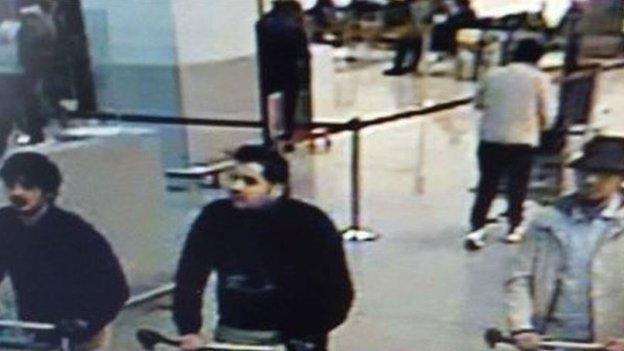
- Published23 March 2016
